New Beginnings: A Conversation with Hae Jung & Sue

Hae Jung is very familiar with loss and grief: Her mother passed away when she was a teenager, after she grew up and got married, her husband died, and three years after that, her father starved to death. Life became unbearably difficult for Hae Jung after the death of her father. With no family left and no resources to survive on, she escaped to China in search of a better life.
Hae Jung was arrested twice during her 14 years in China, but was able to evade repatriation on both occasions. Still, she lived with constant anxiety that she would be caught and sent back, and her Chinese-born daughter, Sue, grew up fearing for her mother’s life.
Seeing the devastating effects that living in hiding had on her daughter, she escaped with Sue to South Korea. Together, they made it safely through LiNK’s networks, a journey which was funded by UT Austin's Rescue Team, just before Sue’s 8th birthday.
Now safely resettled in South Korea, Sue is attending school and Hae Jung is working as a salesperson at a mobile phone company. Hae Jung also volunteers at a local welfare center to aid people with disabilities by cooking for them and cleaning their houses and helps out at her daughter’s school as a crossing guard with other parents.
Our resettlement coordinators, Jihyun and Anna, recently met up with Hae Jung and Sue to see how they’ve been doing.

While cutting up some fruit to serve, Hae Jung began to talk about what it's been like to live in freedom...
Hae Jung: Even nowadays, more than two years after I resettled in South Korea, I still pinch myself to see if this is real—that I’m free, that I live in South Korea. Although there are difficulties here, too, especially for people like me who still don’t know a lot about this society, I always try to think that I can overcome those difficulties. If I already think it is impossible to overcome, I can never overcome anything.

Jihyun: What advice would you give to a friend who just arrived in ROK?
Hae Jung: Try to learn as much technology as possible to facilitate your adjustment to this society (especially knowing how to use computers and the Internet is so necessary). You have to experience new things on your own instead of only listening to other people’s experiences. And, go to college if you are young enough.
No matter where you go, you will always face difficulties, conflicts with other people due to different cultures and customs. Some people will look down on you and you will make mistakes because you are not used to this society. Although South Koreans don’t have to adjust to this society the way resettled North Koreans do, they also deal with similar things in life. We are not that different. Try to find people you can open your heart to, share your struggles with, and laugh about the struggles with them.
Don’t be afraid of difficult things or interpersonal conflicts. Try to remember what you went through in North Korea, where you were not treated as human beings, then it will give you different perspectives on how to approach difficulties you may have.

Jihyun gave Sue a wooden pen, which she was very excited to receive, with the UT Austin crest carved into it. The pen is a gift from Julian, a former member of the UT Austin Rescue Team who now interns at LiNK HQ. Hae Jung and Sue have met Julian twice in South Korea.

Jihyun showed Hae Jung and Sue a video of Julian saying hi and telling them about what he’s doing at LiNK HQ as an intern. Hae Jung was so happy to see Julian that she actually waved and said "Hi!” twice while watching it.

Jihyun to Sue: How do you like school these days?
Sue: It’s alway fun!
Jihyun: What is your favorite subject?
Sue: “Math”

Jihyun to Sue: What are you thankful for this year?
Sue: What do you mean?
Jihyun: Well, for example, you could be thankful because you had a summer break this year, haha. You also saw Julian from the UT Austin Rescue Team again and you got to study with your tutor through our ETCE Program earlier this year. And...ah, your fractured wrist healed well and fast, too! So is there anything you are particularly thankful for, which happened this year?
Sue: “Aren’t we thankful for just the fact that we have life?”

Jihyun to Hae Jung: How do you and Sue spend time together?
Hae Jung: I try to spend as much time as possible with my daughter. We often go to the park in our apartment complex to have mom and daughter time by walking and exercising together. Sometimes we do karaoke, too. When I went to karaoke with my daughter for the first time, I was surprised to see her sing and dance to a lot of South Korean pop songs. I was like, ‘when did you learn all that?’. I realized that kids adjust faster than adults. You know, she already has a South Korean accent.

Jihyun: What kind of difficulties did you face in North Korea?
Hae Jung: Things were so difficult during the famine in the 90s, especially after the public distribution system collapsed in 1994. One time, after starving for so many days, my father and I started moving around to different towns with salt and matches to find tree roots and bark. Whenever we found tree roots and bark, we cooked them with salt and ate them. We had to do that to survive until wild, edible greens started growing in June, so we could eat the greens instead of tree roots and bark. In July and August, I got to save some greens so I could sell them at the illegal marketplaces. However, sometimes my greens even got taken away by the police whenever they cracked down on the illegal marketplaces.
Very sadly, during the famine, I lost many of my family members. I still remember the very moment when I saw my father dying of starvation while crying for corn soup and tofu that he really wanted to eat. I was also very close to starving to death. I weighed as little as 55 pounds, which was not even a half of my normal weight of 119 pounds. If my friend hadn’t brought me some kernels, I would’ve died of starvation like my father.
In order to survive during the terrible famine, the people, including myself, started eating mice, but they were so hard to catch. You might think it sounds so gross, but when you are starving for so long, your mind gets so focused on finding anything edible—and how you can skin and cook them. Whenever I caught a mouse and cooked it, it smelled strong so people living on the same block noticed the smell and could tell someone near them was cooking mouse meat. Starving kids near my house were crying because they smelled it. I tried to share the meat with those kids as much as possible, but sometimes I couldn’t because I was starving, too, and didn’t have enough to share.
Jihyun: What are some difficulties you’ve faced since resettling?
Hae Jung: When I first came to South Korea, I had a hard time understanding expressions and words that South Koreans use. Because of that, I had difficulty communicating with people at work when I was working as a caretaker and waitress.

Jihyun: What is it like living in freedom in South Korea?
Hae Jung: It is very convenient thanks to more technology. Before I left North Korea in the late 90s, in my town there was only one TV in every five households and the TV had only one channel. Now in South Korea, however, every house has at least one TV and it has so many different channels. Also, almost every household has a computer and uses the Internet.
I think the Internet makes my life so much easier. If I want to listen to my favorite songs or look up information, I just have to move my fingers.
I feel so much freedom in many parts of my life. I love that people don’t bother you as long as you don’t bother them or break the law. I also think that the freedom makes people not only more equal to one another but also more friendly to each other.
I love being able to learn new things here.
When I got my ID, after coming to South Korea, I was happy. I felt like I had become a human being again (because I lived illegally in China for so long, always hiding and being afraid of getting caught). When I was in North Korea and China, I felt like I was an animal like a dog or a pig. Since I live as a human being here with freedom, I am proud of myself and even compliment myself for living like a human, which I longed for in North Korea and China.
Freedom also enables me to be healthy since I don’t have to do a lot of physically hard labor that a lot of people still do in North Korea these days due to lack of technology and infrastructure.

Jihyun: What hopes do you have for Sue?
Hae Jung: Of course, like any other mom in the world, I want her to be successful in life. I hope she will go to a good university, study overseas, get a good job, and prosper in many ways. I know that is just my wish. It is out of my control and it depends on how much she tries/her effort.
The most important thing for me is that Sue will grow well—healthy and happy. I want to be there for my daughter whenever she needs me. I want to be positive to her all the time so I can be a good role model and influence her to also take on a positive outlook on life.
Also I want to continue telling her to appreciate what she has and to care for others who are underprivileged and have disabilities. I want her to know that we have to give back to the society because we’ve received so much from people like LiNK’s staff and supporters.
You can help more North Korean refugees escape China and resettle in a safe country here.
A North Korean Refugee’s Daring Escape By Boat | Gyuri Kang’s Story
Escaping from inside North Korea remains almost impossible today. Borders remain sealed by the legacy of pandemic-era restrictions, while surveillance in China continues to intensify. But in 2023, a group of North Koreans crossed into South Korean waters on a small fishing boat—a rare and extraordinary way to reach freedom. Abroad the vessel was 22-year-old Gyuri Kang with her mother and aunt.
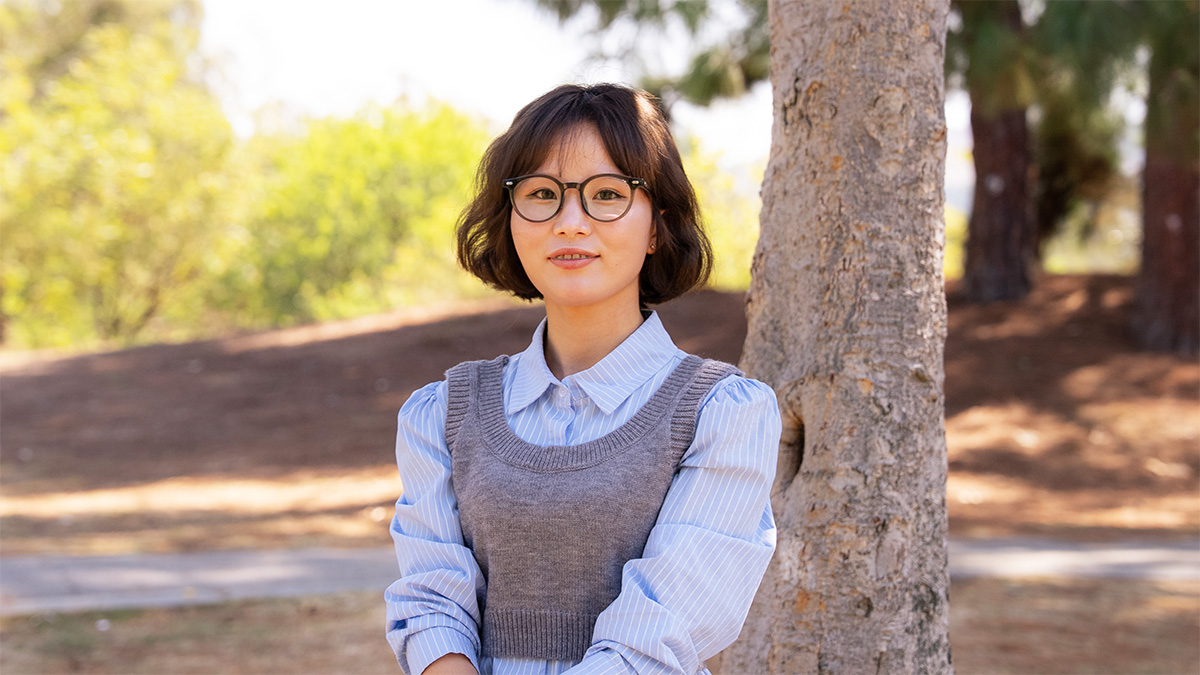
You were never supposed to know my name, see my face, or hear my story. Because I was one of 26 million lives hidden inside North Korea.
I was born in the North Korean capital, Pyongyang. The first time the government decided my future without my consent, I was only a child. My family was exiled to a rural fishing village because of my grandmother’s religion.
In the system we were living in, not even your beliefs or thoughts are truly your own.
On my way to school, youth league officers would inspect my clothes and belongings, punishing me for even a hairpin or a skirt that was a few centimeters too short. At school, we were taught that “we live in the most dignified nation in the world,” but outside those walls, people were collapsing from hunger in the streets.
Careless words overheard by a neighbor could turn into a knock at the door in the middle of the night. The radio played government broadcasts all day long, and searching other frequencies was a risk no one dared to take. This is how the North Korean government maintains control over people. By convincing you that survival depends on submission.

I returned to Pyongyang as an adult. I majored in table tennis at the Pyongyang University of Physical Education and imagined myself making a new life, built on talent and hard work.
But reality was nothing like what I had dreamed. I came to understand a deep, painful truth: In the end, everything was determined by how well you obeyed, not how hard you worked.
Frustration and emptiness built up until I finally decided to leave Pyongyang.
I wanted to help support my mother and aunt, so I moved to the coast to try and build a life of my own. My mother used all of her hard-earned life savings to buy me a small wooden fishing boat so I could start a business harvesting clams.
That boat was more than a way to make a living. It was a daily reminder of her sacrifice, and the depth of their love and trust in me. If the money I earned with my own hands could put even one less wrinkle on her forehead, that was enough for me.
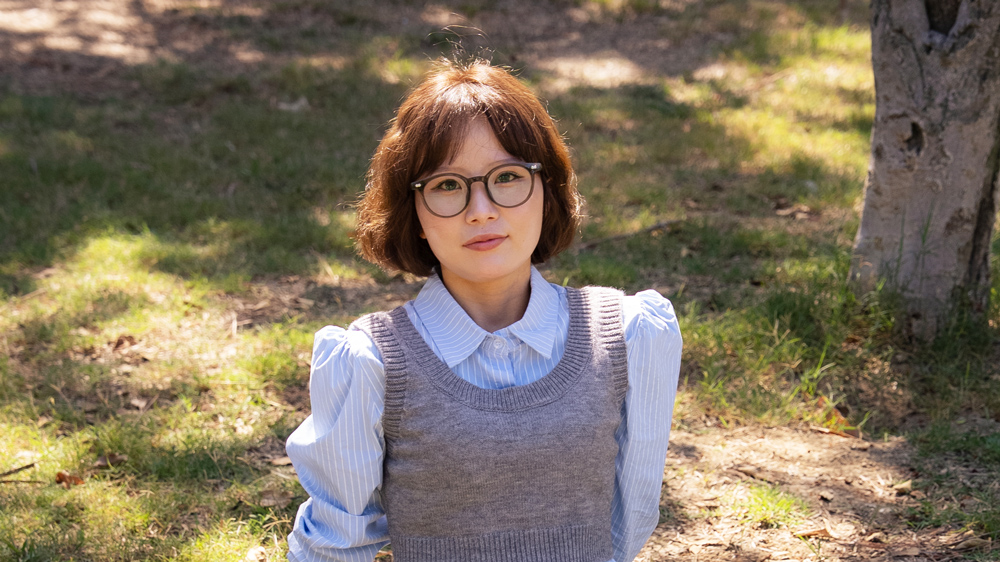
As a boatowner, I woke up early in the mornings to prepare supplies, get the crew together, and encourage them. I inspected the condition of the boat and hired people to help fix the engine and other faulty parts. Although I couldn’t go out to sea because I’m a woman, I was responsible for ensuring the ship operated smoothly.
But the harder I worked, the more government officials came to me—demanding baskets of clams and money. They justified their demands by saying: “The Party orders it,” threatening to punish anyone who refused. Every night I agonized over how to protect my people and keep my business going, and how I should respond. In those moments, I would remember the love and devotion my mother and aunt had poured into me and it gave me strength to persevere.
To escape my reality, at night I secretly watched South Korean TV shows on a television that was smuggled in from China.
My world turned upside down. With my friends who were also watching South Korean media, we would cautiously express our dissatisfaction together while also copying the hairstyles and outfits we saw in dramas. Sometimes, we would even try to mimic South Korean words or accents when talking or texting together.
But under Kim Jong Un, punishments became much more severe. Two people I knew were executed for watching and sharing foreign media. Our lives became harder, control over young people became more intense, and our resentment began to grow.

But no matter how much they tried to repress us, frustrated young people like me continued watching forbidden content as a way to forget reality. Foreign media has quietly found its way into North Korea for decades. As I grew up, it began spreading more than ever before, through USBs passed between friends or broadcasts picked up on illegal devices.
Many defectors, like me, can remember the exact episode of a TV show, a specific South Korean song, or even a traffic report, that planted the first seeds of doubt.
Of course, dramas and movies don’t tell the whole story, but they show a life that contradicts everything we were taught. And it makes you wonder: if life is so different out there, why does it have to be this way here?
I realized it doesn’t just show people that different lives exist. It gives them the belief that their life could be different. And that belief gives people the courage to choose a different future.
The thing about information is once you learn something, you cannot unlearn it. I remember watching people on my screen speak freely, laugh openly, and pursue their dreams—things that were unimaginable in North Korea. For the first time, I wondered if everything we were taught might be wrong. That doubt led to questions, and my curiosity became too strong to ignore. Now that I had seen the truth, I could never go back to the person I was before.
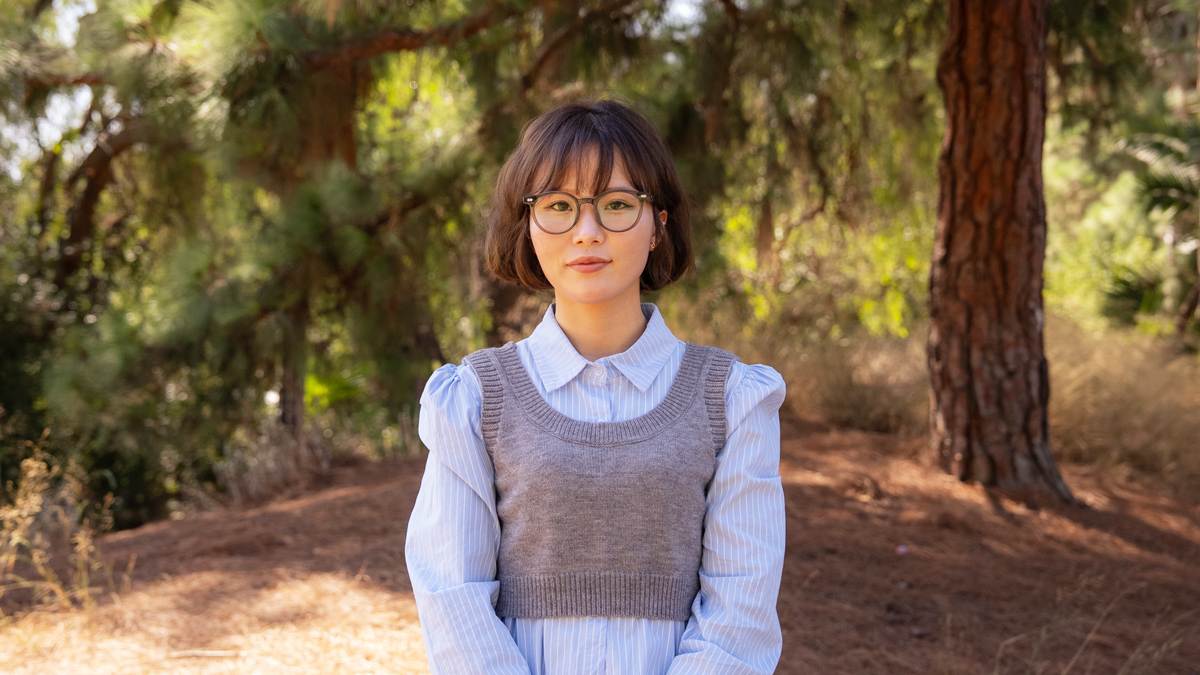
Escaping North Korea cannot be explained by the simple word “leaving.” This was especially true for me because I escaped together with my mom and my aunt. They had placed their trust in me when they gave me money for that boat. And now I was placing my trust in that boat to carry us across the sea to freedom.
I planned our escape in complete secrecy.
I bought a smuggled GPS device from China, carefully traced our route, observed the currents and tides, learned the patrol schedules of the guard boats, and figured out the blind spots of the coastal guard posts. I meticulously checked the condition of the boat and quietly prepared all the food and supplies we would need. I trained my body for the wind and the waves, and my mind for the terror of being caught.
Some nights I woke up in a panic. Other times my confidence crumbled and I thought, maybe I should give up and just accept the life I have. But in those moments, I imagined what waited at the end of the journey.
I wasn’t leaving just to stay alive. I was leaving so that I could live like a human being.
On the night we left, we climbed into my boat and pushed off into the dark water. I gripped the rudder and let the current carry us south, carefully navigating around the guard posts and patrol boats who were on the water looking for people like us.
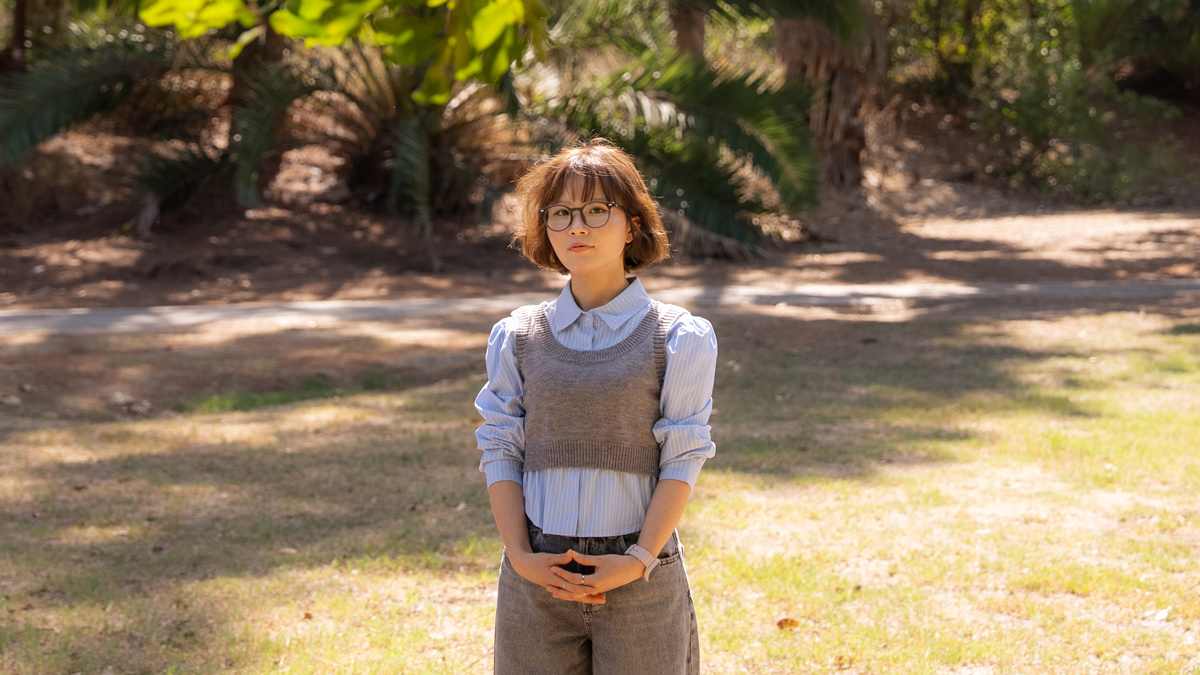
I knew what would happen if we were caught. Arrest. Endless investigations. Humiliation. Public trials. Political prison camp. And the possibility that I might lose the people I loved most in the world.
My mother and aunt were trembling with fear. I had to hide my own fear to tell them what I could only hope. We will survive. We spent the night being tossed back and forth on the East Sea. Black waves lifted our boat like a toy before smashing it down again. Every crash sent water over the sides and threatened to swallow us up.
Suddenly, a patrol ship appeared. Its lights stabbed the water, blinding us, and started coming closer and closer. It was coming for us. My chest pounded so hard I felt it might burst. I thought of the sleeping pills we had brought.
We had agreed that if capture became inevitable, we would rather take our own lives. It was a fate we preferred to execution or prison camps. As the coast guard closed in, I wondered, is it time for the pills?
But I refused to give in. We were so close. I steered away from the searchlights, surrendered the boat to the churning water, and pushed on forward.
Suddenly, the patrol vessel stopped and turned back around. They could no longer chase us. We had reached the maritime border. The sea calmed, as if it was welcoming us to freedom. And as the sun rose, we saw the outline of land.
A South Korean fisherman, hearing radio reports that North Korean patrols were in pursuit, realized we were the boat being chased. He steered his boat toward us and said, "Welcome. You are safe now."
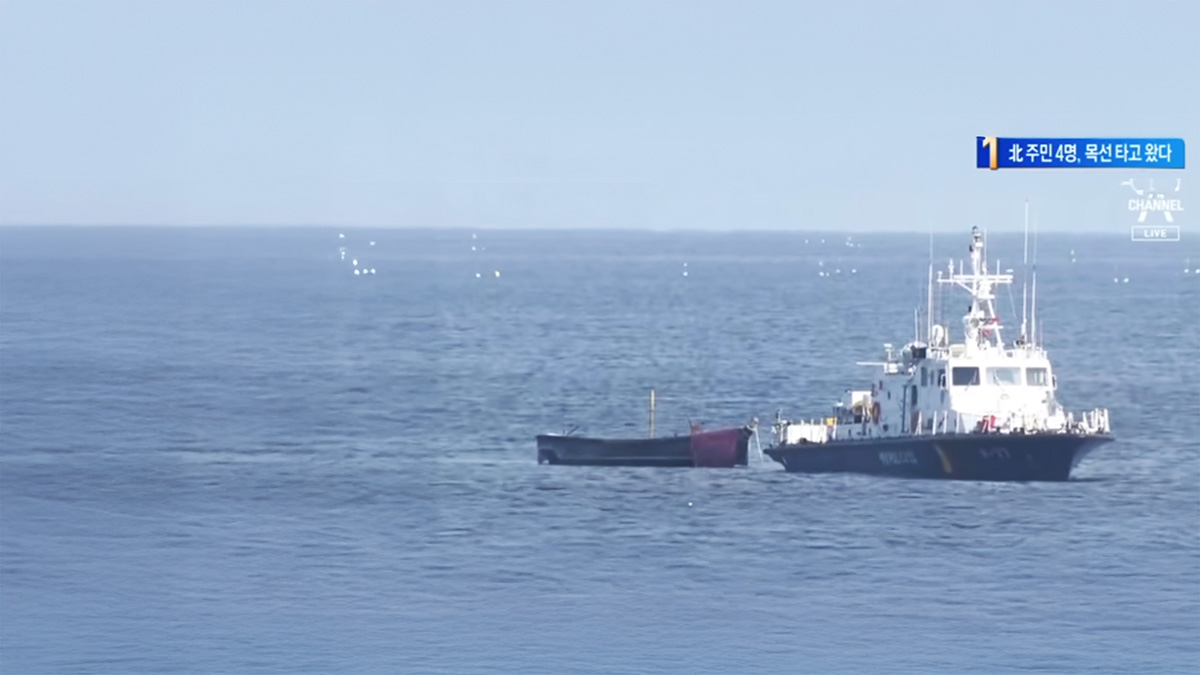
It’s been almost two years since we arrived in South Korea.
I still remember moving into our apartment and using a showerhead for the first time, experiencing hot water flowing straight from the tap. I couldn’t believe it. That day, my mother, my aunt and I took turns showering, laughing, and saying to each other, “So this is what a human life feels like.”
For the first time in my life, I could choose my studies, my job, my clothes, my hobbies—even the way I spoke—for myself. It felt like an entirely new world. We were being reborn, leaving behind a past of silence and control for a life with dignity and a future we could choose ourselves.
My mother began studying for a professional certification. And my aunt enrolled in social welfare classes to help others. I studied hard and was recently accepted into Ewha University. I have also been active in North Korean human rights activism and I even started a YouTube channel to show the world what it looks like to start a new life in South Korea.
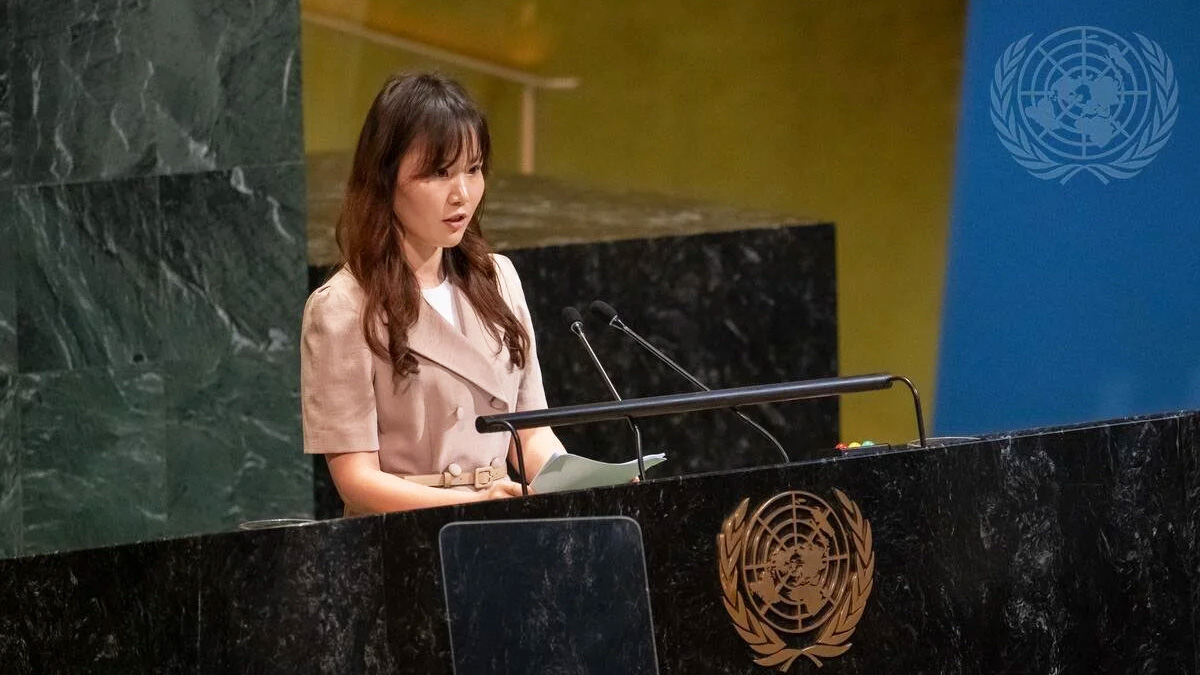
Hope is dangerous for the North Korean government. Millions of people live with anger and sadness, but even more live in resignation. Most do not realize their rights are being violated—they don’t know what “rights” are. I once believed it was normal for the state to control every part of our lives. I thought every country lived this way.
But the moment you realize life could be different, hope begins to take root. And once hope exists, change is no longer unimaginable.
My dream is that someday North Korea will be a place where young people choose their own paths, where no one is punished for their words, and where every person lives as the true owner of their life. While so much of North Korea’s reality is dark, change is already happening. And what sparks that change is information. A single truth from the outside world, a glimpse of what life could be, can plant a seed of doubt, or ignite a spark of hope.
That’s why I speak out. If I don’t tell my story, who will tell it for me? If I stay silent, will the death of my friends, and the suffering and starvation my family endured be forgotten?
Right now, in North Korea, there is someone just like me—sitting in a dark room, secretly watching a South Korean broadcast, quietly wondering: Could I also live like that?
I want my story to prove that this hope can become a reality. I want to stand in the middle of that change. Not just as someone who escaped to enjoy freedom, but as someone determined to one day share that freedom with all North Korean people.
Freedom is not given, but it is something we can achieve. With your support, we can write a future where all North Korean people are free.
Foreign media gave Gyuri a glimpse of the outside world—and the courage to seek freedom.
Increasing North Korean people’s access to outside information is one of the most effective levers for change in the country. And that is exactly what we’re doing at Liberty in North Korea
In partnership with North Korean defectors and engineers, LiNK develops tailor-made technology, tools, and content that help people inside the country access more information more safely. These glimpses into the wider world build people’s resilience to the regime’s propaganda, and emboldens them to imagine a different future for themselves and their country.
Help fuel work that’s directly supporting North Koreans driving change on the inside.




